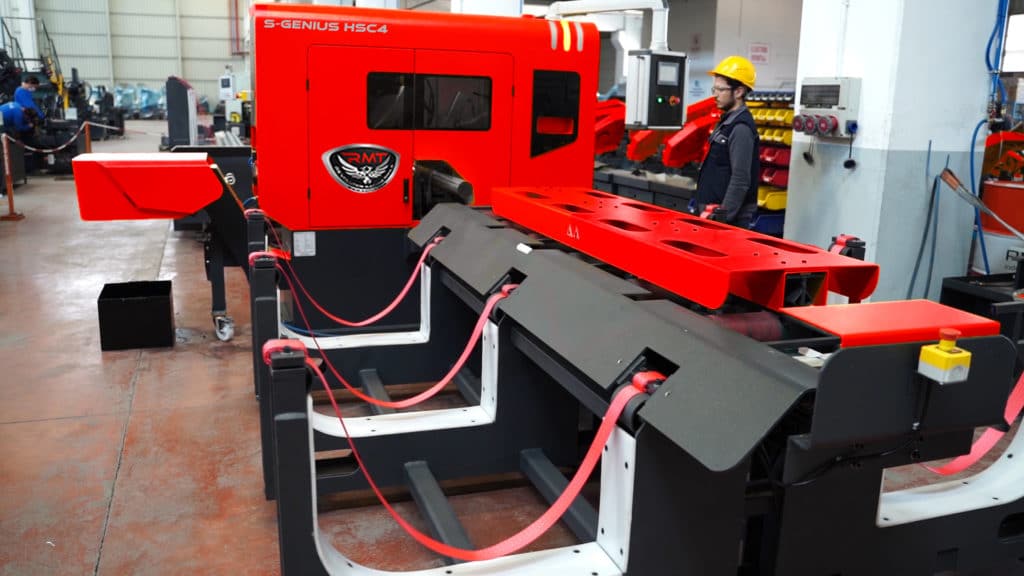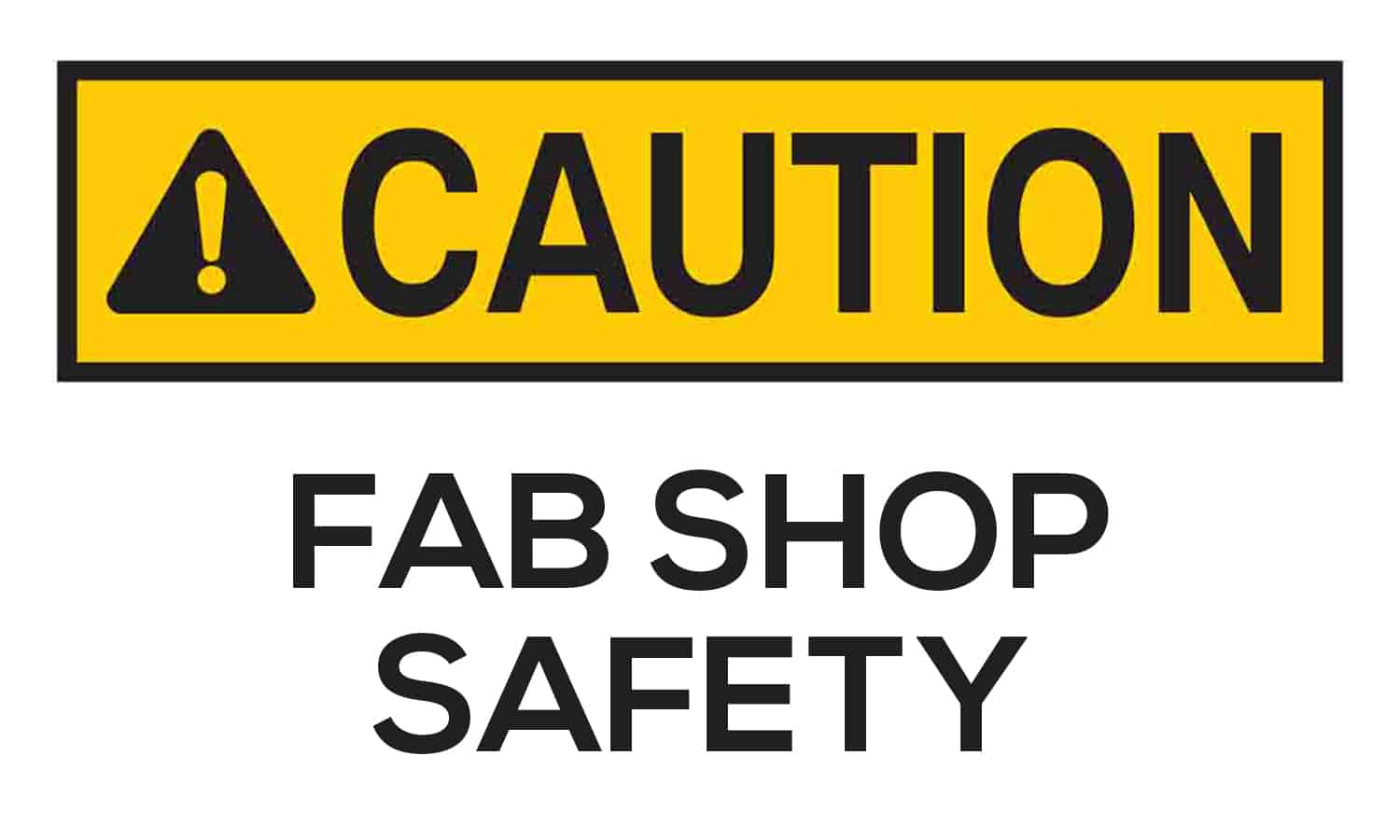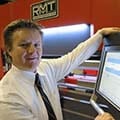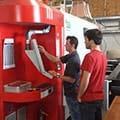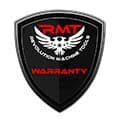PPE Is No Joke
A few years ago, at a machinery dealer in the Western U.S. (not Revolution Machine Tools), signs started going up after a visit from OSHA, the Occupational Safety and Health Administration. One employee, a member of the office staff, noted the “Don’t Forget Your PPE” sign at the entrance to the shop area and made jokes about what PPE might be an abbreviation for. In spite of daily visits to the shop for over a decade, this staffer had never heard the phrase “personal protective equipment” spoken, nor had he ever been issued anything other than a pair of heavy gloves for the rare occasions when he might be handling something in the shop. Most personnel previously didn’t have access to either safety goggles or hard hats. That changed after that OSHA visit.
All companies have the responsibility to remember that the most valuable assets they have are their employees. They are also some of the most fragile assets, easily damaged (but not easily replaced). Protection of workers in shops and other hazardous environments on the job must be kept foremost in the mind of owners and management alike. Issuing protective equipment to all applicable staff—and proper training in its use—can never be neglected or downplayed.
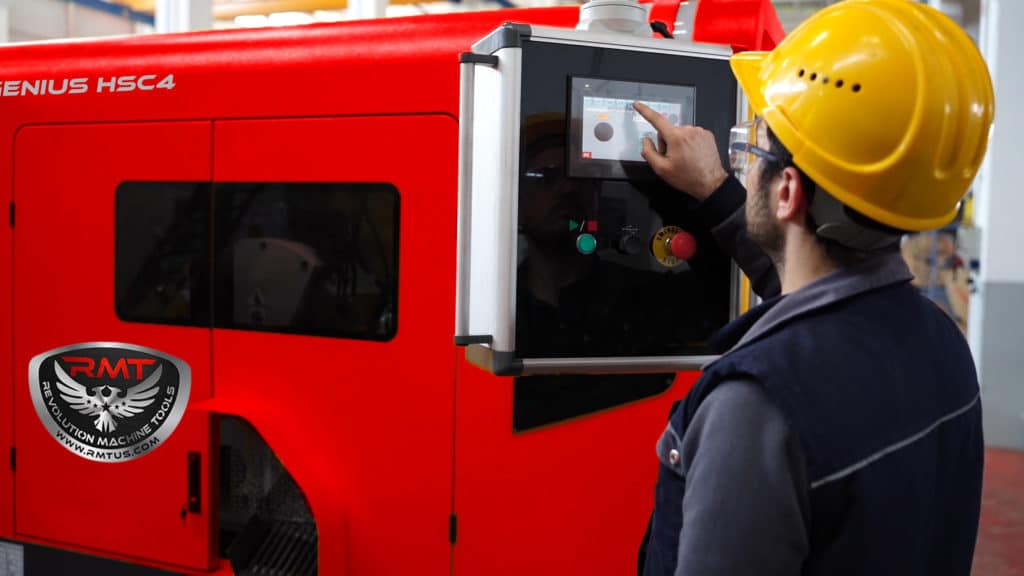
Big Brother Is Watching
In George Orwell’s 1949 novel about a dystopian future titled “1984,” the citizens are under constant surveillance by government authorities, run by the unseen character of “Big Brother.” Posted to remind the populace of this are signs bearing the slogan “Big Brother is watching you.” In our modern culture, we often refer to abuse of power, especially if it involves surveillance, as “Big Brother.”
While having government oversight can feel stifling, it is useful in enforcing safety laws which otherwise could more often be ignored, potentially leading to tragedy. Like it or not, such regulations enforced by OSHA under penalty of costly fines will be with the metalworking industry for the foreseeable future. Rather than being resented, such guidelines should be welcomed and embraced by companies who truly value the people who work for them.
Establishing a culture of safety, starting with the use of personal protective equipment, should be motivated first by consideration of employees, then by concerns for profitability (which is always impaired when workers are injured and absent), and only lastly because of worry about what OSHA might discover. A healthy corporate culture is always focused on what is right for the company and the employees, not what can be “gotten away with.”
Types of Personal Protective Equipment
There are a variety of PPE items that are appropriate for—and needed in—metalworking, whether the work is machining, metal fabrication, or material handling.
- Hand Protection. Special gloves are needed by employees working with metal, chemicals, heat or other potential hazards. Depending on the job, hand coverings should protect against cuts, punctures, fractures, amputations, burns (chemical, thermal or electrical) and any substances that could be absorbed through the skin.
- Foot Protection. Boots or shoes with reinforced toes should be worn in any work environment where heavy objects might fall or roll onto an employee’s feet. Likewise, reinforced soles or whole boots should be used when working with sharp objects like nails. Insulated soles should be worn when working near electrical hazards, though conductive footwear may be needed when a worker is exposed to static electricity. Special foot protection should be used around molten metal and appropriate shoes should be worn in wet or slippery areas.
- Head Protection. Hard hats or safety helmets are needed when any potential head impacts are present, whether from falling objects, moving objects (like a crane) or even when an individual could bump their head against a fixed object like an exposed beam or pipe. They should also be worn where there is a risk of burns or electrical shocks.
- Eye Protection. Special lenses are required when workers operate welding, laser cutting, or other equipment that creates harmful light radiation. Appropriate eye protection is needed when employees or observers are exposed to flying particles, molten metal, acids and other caustic liquids, liquid and gaseous chemicals and possibly infected material.
- Hearing Protection. In a production or metalworking environment, loud noise is a frequent concern. Hearing protection should be issued to employees who are exposed to certain levels of sound (measured in decibels) for particular lengths of time. Specific levels of sound require employers to have their employees take professional hearing tests on a regular basis.
- Breathing Protection. When employees are exposed to airborne contaminants like dust, particles, gases or vapors, special gear like particle masks or respirators should be issued. Regardless of whether the substance is dangerously toxic or just simply irritating, workers should be protected from exposure to it.
- Protective Clothing. Suitable face coverings and clothing is needed for employees who can potentially be injured by impact from objects, chemicals, molten metal, heat, electrocution and radiation. If conditions warrant wearing gloves, additional arm protection should be considered. Likewise, if protective footwear is required, extra protection for legs might be necessary. Just because an employee has a hard hat, goggles and gloves, doesn’t mean that he or she is completely safe from physical harm, so an appropriate evaluation of potential hazards should determine the correct amount of PPE needed.
The wearing of protective gear should always be in accordance with the particular subset of the metalworking industry that the company or division is involved with.
The Worth of the Employee
Personal protective equipment is critical in fabricating and machine tool shops. Rather than detesting and resisting the requirement for PPE, company management should enthusiastically encourage the use of such devices by employees. As one business program pointed out, “If the owner or manager does not show an interest in preventing employee injury and illness, then the employees will probably not give it much thought either.” (Rhode Island Small Business Recovery Program)
As management shows an interest in the wellbeing of each individual employee, those employees will be better motivated to work harder—and safer—for the benefit of the company as well as for themselves.
